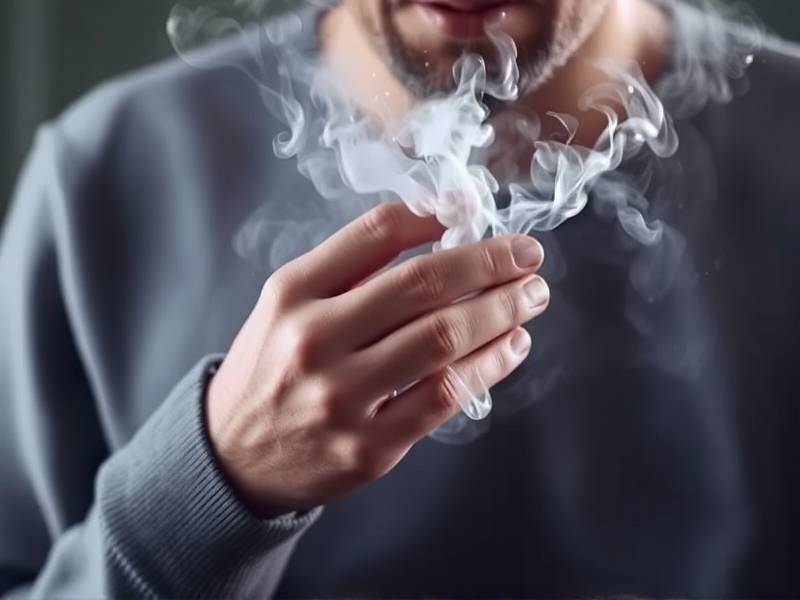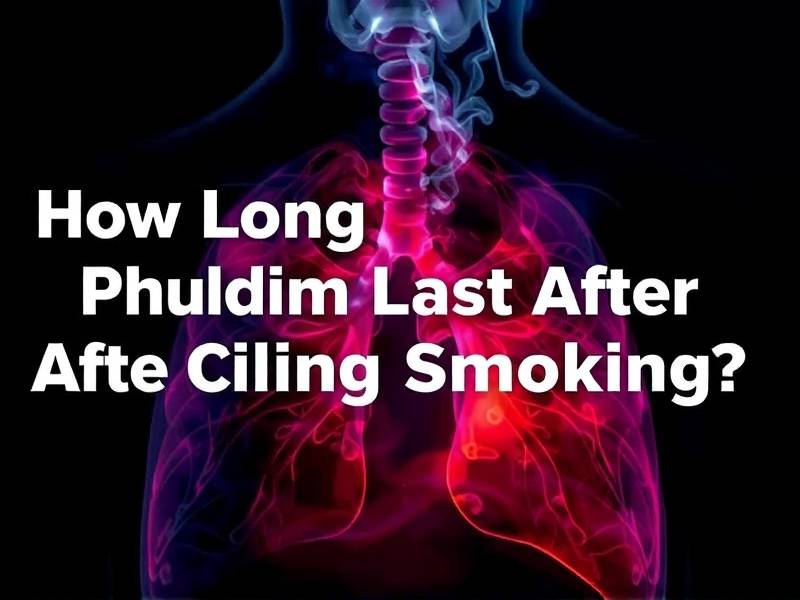How Long Does Phlegm Last After Quitting Smoking?
Understanding the Duration of Phlegm After Smoking Cessation
Introduction: Quitting smoking is a significant step towards improving one's health. However, it is common for individuals to experience various withdrawal symptoms, including the presence of phlegm. This article aims to provide insights into how long phlegm may last after quitting smoking and offer guidance on managing this symptom effectively.

-
The Role of Smoking in Phlegm Production Smoking damages the respiratory system, leading to increased mucus production. When you quit smoking, your body starts healing, which can cause an increase in phlegm as it clears out the accumulated toxins.

-
How Long Does Phlegm Last After Quitting Smoking? The duration of phlegm after quitting smoking can vary from person to person. Generally, it may take anywhere from a few weeks to several months for the body to completely rid itself of excess mucus. Here are some factors that can influence this timeline:
a) Individual Differences: Each individual's response to smoking cessation varies based on factors such as age, overall health, and duration of smoking.
b) Amount of Smoking: The longer and more frequently you smoked, the more significant the buildup of mucus in your respiratory system will be. Consequently, it may take longer for your body to clear it out.
c) Environmental Factors: Exposure to pollutants or irritants after quitting smoking can exacerbate mucus production and prolong its presence.
- Managing Phlegm After Quitting Smoking To manage phlegm effectively after quitting smoking, consider the following tips:
a) Stay Hydrated: Drinking plenty of water helps thin mucus and make it easier to expel from your respiratory system.
b) Practice Deep Breathing Exercises: Techniques like diaphragmatic breathing can improve lung function and help clear out excess mucus.
c) Use Humidifiers: Adding moisture to the air can help alleviate congestion and reduce phlegm production.
d) Avoid Irritants: Minimize exposure to smoke, dust, pollen, and other allergens that can trigger increased mucus production.
- Monitoring Your Progress Keep track of your progress by noting changes in your respiratory health and phlegm production over time. If you experience persistent or severe symptoms that concern you, consult a healthcare professional for guidance.
Conclusion: Understanding how long phlegm may last after quitting smoking is essential for managing this common withdrawal symptom effectively. By staying hydrated, practicing deep breathing exercises, using humidifiers, and avoiding irritants, you can help alleviate discomfort and support your body's healing process as it adjusts to life without tobacco. Remember that patience is key during this transition period as your respiratory system continues to improve over time.
